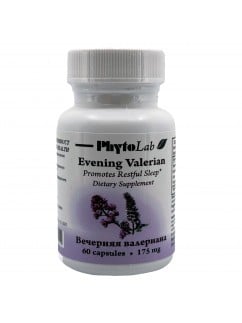Valerian Root | Valerian Tea | Valerian Tincture
Description.Valerian has been used as a sleep aid for over 1,000 years. This herb is a native plant both of Europe and North America. Valerian roots are often prepared in tincture form. Its ability to help relax the central nervous system, promote feelings of calm, decrease levels of anxiety and stress, and enhance sleep are known to millions the world over. Unlike some prescription sleep aids, valerian is not known to cause morning grogginess and is non-addictive. Uses.This herb has a historical use as an anti-convulsion, sedative, migraine reduction and pain reliever. Valerian root tincture is used in the traditional medicine of many cultures as a mild sedative and to aid the induction of sleep. Having also some slight influence upon the circulation, slowing the heart and increasing its force, it has been used in the reduction of cardiac palpitations. Valerian root extract has fewer side effects than prescription sleep medications. Valerian has often been used in complementary and alternative medicine for its sedative properties. Currently, the tincture is mainly used for insomnia.
Warning! Before using any herbal products, make sure that you have full knowledge of how the herb works and any adverse reaction it may cause.Regular Price: $6.99
Special Price $5.99
In traditional medicine, Valerian root is so revered that it was called All-Heal.
Actions: Sedative; promotes sleep, reduces muscle tension and spasms, lowers blood pressure; Mildly increases urine production; expectorant.
Medicinal use: Used internally for anxiety, insomnia, nervous tension, and irritable bowel syndromes, and applied locally for muscle spasms. Chinese physicians prescribe it for flu, rheumatism, insomnia, apprehension, and traumatic injuries.
Contains: 100% Valerian extract
$5.99- Valerian has been used for centuries to aid sleep. This special infusion is designed for nighttime use to help improve sleep without the feeling of grogginess in the morning. Valerian tincture has no side effects. Ingredients: Valerian extract, motherwort extract, peppermint oil$6.99
- These drops combine the properties of Lily-of-the-Valley and Valerian. Their ability to help relax the central nervous system, promote feelings of calm, decrease levels of anxiety and stress, and enhance sleep are known to millions the world over. Unlike some prescription sleep aids, these drops are not known to cause morning grogginess and are non-addictive. This tincture is used as an anti-convulsive, sedative, migraine reduction and pain reliever. The drops are used as a mild sedative and to aid the induction of sleep. Having also some slight influence upon the circulation, slowing the heart and increasing its force, it is used in the reduction of cardiac palpitations. Recommended dosage: Dilute 15-20 drops in warm water 3 times daily.
Warning! Before using any herbal products, make sure that you have full knowledge of how the herb works and any adverse reaction it may cause.$5.99 Internally, aqueous infusion and alcoholic tincture of the rhizomes and roots are used as a calming remedy for nervous excitement, insomnia, asthma, palpitations, seizures, spasms, hysteria, neuroses of the cardiovascular system accompanied by pain and spasms of coronary vessels, for nervous diseases of the stomach and intestines, skin diseases on a nervous basis, and other nervous disorders. They are also used for headaches of nervous origin and inflammation of the sciatic nerve.
Method of application and dosage: 2.5 tablespoons of roots are poured with 200 ml of boiling water, infused for 45-60 minutes, strained. Boiled water is added to the obtained infusion to the original volume. Take 2-3 tablespoons 3-4 times a day, 30 minutes after meals. Tincture: 1 part valerian roots and 5 parts 70° alcohol or vodka, infuse for a week, strain. Take 15-20 drops 3-4 times a day.
Contraindications: Individual intolerance. Nausea and vomiting may occur in case of overdose.
$6.99- Maintains Relaxed Sleep, Clear Thinking. Alsp helps with Stress, Headache and Anxiety.$8.99
- Valerian has been used as a sleep aid for over 1,000 years. This herb is a native plant both of Europe and North America. Valerian roots are often prepared in tea form, and in doing so they should not be prepared with boiling water, as this may drive off the lighter oils. Its ability to help relax the central nervous system, promote feelings of calm, decrease levels of anxiety and stress, and enhance sleep are known to millions the world over. Unlike some prescription sleep aids, valerian is not known to cause morning grogginess and is non-addictive.$7.99
- Maintains Relaxed Sleep, Clear Thinking. Also helps with Stress, Headache and Anxiety.$8.99
Valerian Root: An Ancient Remedy for Modern Health Issues
Valerian root, derived from the Valeriana officinalis plant, has been used for centuries in traditional medicine. Known for its calming properties, this herbal remedy has gained popularity in modern times for its medical benefits, particularly in addressing sleep disorders, anxiety, and stress. This article delves into the medical use of valerian root, its benefits, potential side effects, and how it can improve overall health.
What is Valerian Root?
Valerian root comes from a perennial flowering plant native to Europe and Asia. For centuries, it has been used to treat insomnia, anxiety, and nervous tension. Its therapeutic properties are attributed to compounds like valerenic acid, isovaleric acid, and various antioxidants, which have calming and sedative effects on the nervous system.
Health Benefits of Valerian Root
- Relief from Insomnia and Sleep Disorders
One of the most well-known uses of valerian root is to treat sleep disorders such as insomnia. Its sedative properties help improve sleep quality by promoting relaxation. Valerian works by increasing the levels of gamma-aminobutyric acid (GABA) in the brain, a neurotransmitter that reduces brain activity, making it easier to fall asleep.
Studies have shown that valerian root can improve sleep latency (the time it takes to fall asleep) and sleep quality without causing grogginess the next day, unlike many prescription sleep aids.
- Anxiety and Stress Relief
Valerian root is also used to manage anxiety and stress. Its calming effect on the nervous system can help reduce symptoms of anxiety, including restlessness, irritability, and heart palpitations. By increasing GABA levels, valerian root naturally soothes the mind and body, which can be particularly helpful for individuals suffering from generalized anxiety disorder (GAD).
- Potential Treatment for Menopausal Symptoms
Women going through menopause often experience anxiety, mood swings, and sleep disturbances. Valerian root may help alleviate these symptoms by balancing neurotransmitters and hormones that contribute to emotional regulation. Research suggests that valerian can help reduce the severity of hot flashes and improve overall mood during menopause.
- Muscle Relaxation and Pain Relief
Valerian root has antispasmodic properties, which means it can help relax muscles and relieve spasms. This makes it useful for conditions like menstrual cramps and muscle pain. It may also be beneficial for individuals with conditions like restless legs syndrome (RLS) due to its ability to relax muscles and promote a sense of calm.
How to Use Valerian Root
Valerian root is available in various forms, including capsules, tablets, teas, tinctures, and dried root for brewing. The dosage typically ranges between 300 to 600 mg per day for anxiety and sleep issues, but it’s important to consult a healthcare provider for personalized recommendations, especially for long-term use.
Side Effects and Precautions
While valerian root is generally considered safe, it can cause side effects in some individuals, particularly if taken in high doses. Common side effects include headaches, dizziness, gastrointestinal discomfort, and drowsiness. It’s important to avoid combining valerian root with alcohol or other sedatives, as it may amplify their effects, leading to excessive drowsiness or impaired motor functions.
Valerian should also be used with caution by pregnant or breastfeeding women and individuals with liver problems or those taking medications for anxiety, depression, or sleep disorders.
Conclusion
Valerian root is a powerful herbal remedy with centuries of use in treating insomnia, anxiety, and other health issues. Its natural sedative properties, muscle-relaxing effects, and ability to improve sleep make it an attractive alternative to synthetic medications. However, as with any supplement, it’s essential to use valerian root under the guidance of a healthcare professional to avoid potential side effects and interactions with other medications.
By incorporating valerian root into a balanced health regimen, individuals can experience improved sleep, reduced anxiety, and overall better quality of life.



















